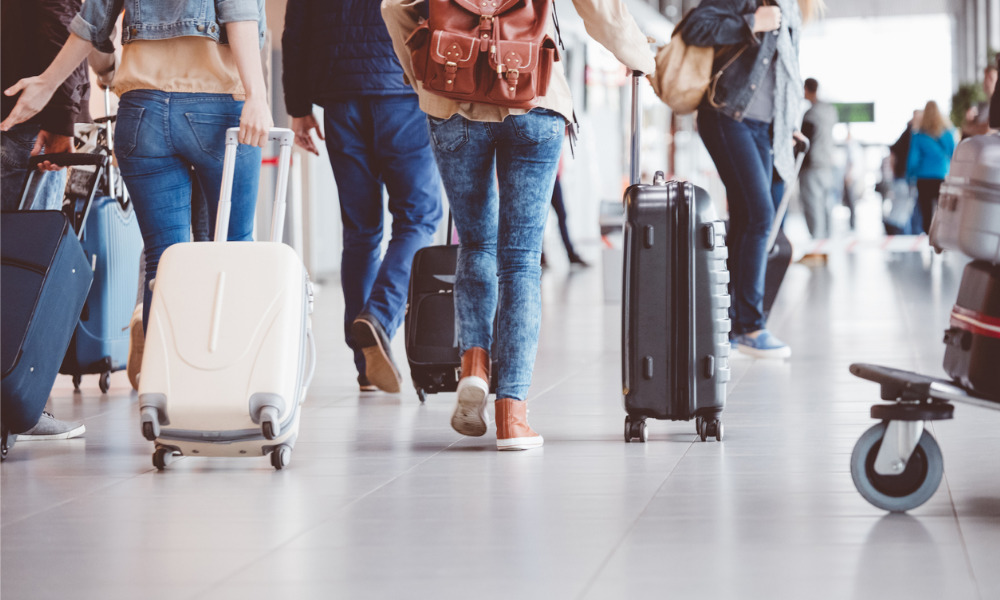
Organisations must decide how they approach employees travelling overseas

The opening of the Trans-Tasman travel bubble has sparked tricky questions for HR as they navigate whether to impose a travel policy.
Establishing quarantine-free travel between Australia and New Zealand has seen families reunited and the opportunity for employees to visit clients on the other side of the ditch. But with uncertainty remaining around the likelihood of lockdowns, travellers may find themselves stranded if an outbreak takes hold in either Australia or New Zealand.
Some employers have decided to issue policy guidelines for staff choosing to travel abroad. Vodafone NZ has said any employees wishing to fly internationally will have to discuss their plans with their team leader first and create a contingency plan in the event they became stuck. The company urged staff to consider the issue carefully and if an employee who was required to be onsite became stuck abroad, they could find themselves out of a job.
Speaking to HRD, Randstad’s New Zealand country director Katherine Swan said employers should be as flexible and adaptable as possible while working through unchartered territories such as travel bubbles.
“Whether it’s Trans-Tasman travel in the short term, or further afield when other borders open up, what we’re seeing is the beginning of the next phase of the way we travel in a Covid environment,” she said. “It’s a phase where making plans to go overseas involves factoring in associated risks that employees and employers may not have had to think about in the past.
“While I can’t speak to the legalities of what an employer can or can’t do in terms of limiting travel, I believe that the question of travel in a post-Covid world will continue to come up and employers should be mindful of the big picture when addressing this issue.
“Transparent and open communication is a critical component of building and maintaining trust with employees, an essential element of a strong employer brand.”
Read more: Vodafone issues clearer travel guidelines for staff
Swan said encouraging those channels of communication between an employee and their manager or HR function is an important first step if employers are concerned about staff wishing to travel. By having a conversation about the risk and any contingency planning necessary, both the employer and employee should get a better understanding of their respective concerns and how to manage them.
She also recommended that employers have that conversations with prospective hires during the recruitment process as well to ensure the candidate is aware and onboard with any travel policy that may be in place.
While much of the work-related travel that used to be commonplace between Australia and NZ will be replaced with virtual alternatives for the time being, some organisations are sending their employees overseas. Last month, Air NZ CEO Greg Foran made the trip to Australia to visit his family and meet two new grandchildren for the first time. So how can employers support their staff going abroad for work?
Read more: Can HR ban unvaccinated staff from travelling?
Swan said employers will need to ensure staff know the associated risks of travelling and be fully prepared to support their staff in the event of a lockdown or a stay in hotel quarantine. Like personal travel, they should map out contingency plans to remain as prepared as possible. But if the last 12 months have taught us anything, it’s that no amount of planning can stop unexpected situations from arising.
That’s why a one-size-fits approach to travel policies will do more harm than good in terms of employee engagement and morale. After a tough year, for many people the thought of reuniting with friends and family in Australia or New Zealand has been the light at the end of the tunnel.
“We have seen employers come so far in the way they have embraced flexible working to support the needs of their employees so it would be a shame to see these lessons being over-looked when it comes to travel,” Swan said.